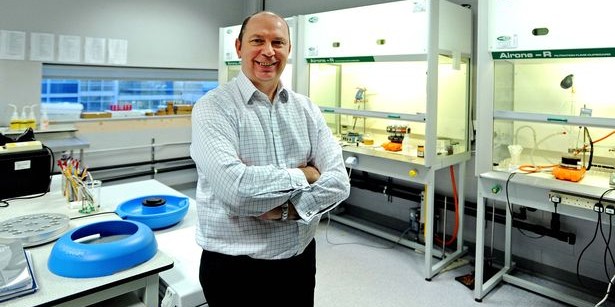RedXPharma and Astra Zeneca confirm new “transformational” partnership
In a move that has been described as “transformational” by its chief executive Neil Murray, Liverpool biotech firm RedxPharma has struck up a partnership with global pharmaceutical giant AstraZeneca with the goal of developing revolutionary new drugs that will stop the growth of cancerous tumours.
This multi-million pound deal between companies will see scientists from both companies working in conjunction with each other to research and produce new molecules that will hopefully target a genetic driver of tumour growth and survival.
The research will primarily take place at RedX’s facility in Liverpool city centre and the Biohub at Alderley Park in Cheshire; a facility set up by Astra Zeneca as a way of sharing their expertise with other life sciences companies.
The alliance with AstraZeneca has proved fruitful for the local Liverpool Company, as their participation in the research has earned them an up-front payment, with the potential to earn significant royalties according to the success of the project.
Chief executive Neil Murray (pictured), said:
“The project is a good fit for both parties and builds on Redx’s strong track record in rapidly developing novel drugs in cancer. Redx boast a 150-strong roster of employees with experience in early-stage drug discovery, while AstraZeneca will be providing their indispensable knowledge and expertise of Oncology to further development.
The research compliments AstraZeneca’s strategic approach to targeting cancerous tumour and will assist in the development of novel cancer therapies. Susan Galbraith, the head of the Oncology Innovative Medicines Unit at Astra Zeneca voiced a positive opinion of the partneship “Collaboration and scientific exchange are at the heart of AstraZeneca’s innovation-led strategy. This partnership is based on our own early stage oncology research focused on the genetic drivers of cancer and allows us to build on our combined drug discovery expertise. The co-location of our scientists will facilitate our collaboration.”
Words: Daniel Pearce


